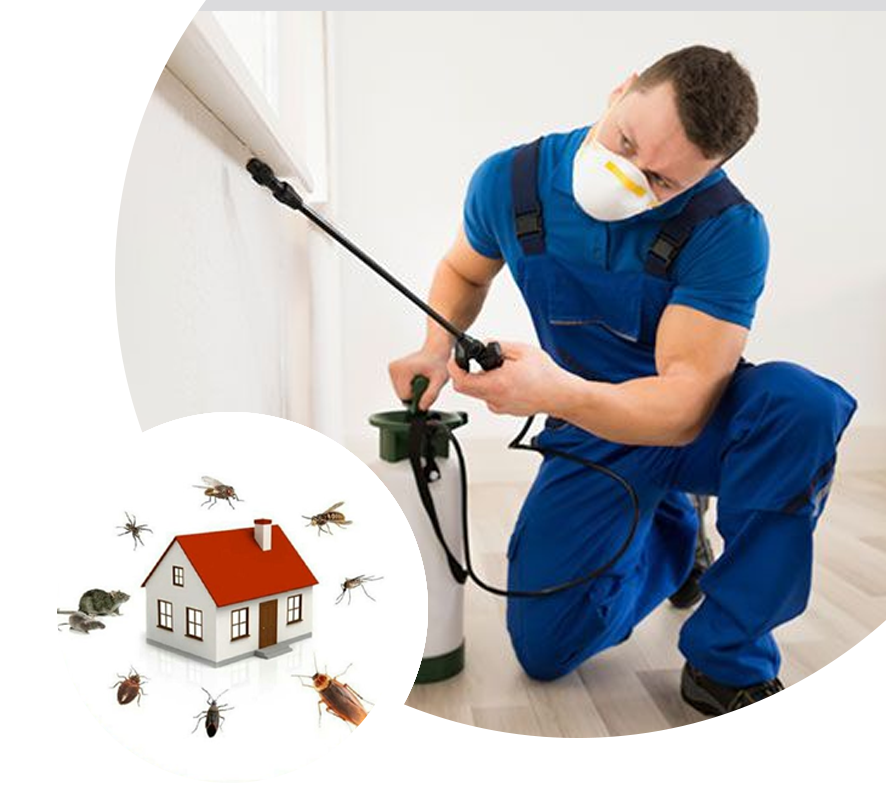Specialist Bed Bug Exterminator: Rest Easy Understanding Your Home is Bug-Free!
Specialist Bed Bug Exterminator: Rest Easy Understanding Your Home is Bug-Free!
Blog Article
Expert Parasite Control Techniques for Long-Term Results
In the realm of bug control, accomplishing sustained efficiency and long-term outcomes needs a thorough technique that goes beyond mere elimination. Expert bug control techniques envelop an extensive method that starts with a comprehensive inspection and evaluation, followed by specific insect identification to recognize their habits patterns. The implementation of Integrated Bug Monitoring (IPM) principles, paired with eco-conscious therapies, develops the keystone of sustainable insect eradication. The true test exists in the ongoing surveillance and upkeep of the treated locations, guaranteeing a pest-free environment for the direct future. By diving into the intricacies of these strategies, a much deeper understanding of professional pest control techniques for enduring outcomes emerges.
Inspection and Assessment
Upon going into a building for pest control solutions, the preliminary step is a complete evaluation and evaluation to determine the level of the invasion and determine the most reliable therapy plan. Expert parasite control service technicians are trained to carefully examine the properties, looking for indications of insect task such as droppings, nibble marks, nests, or any kind of architectural damage. They will also evaluate the problems that might be bring in insects, such as food sources, water leakages, or entry points.

Bug Recognition and Habits

Additionally, understanding the habits of the identified parasite is essential to implementing effective control steps. For example, recognizing where parasites nest, what they feed on, and their task patterns can help pest control experts design techniques to eradicate them effectively. Some parasites may be nocturnal, while others are a lot more energetic during the day. This knowledge enables the application of therapies at optimum times for maximum efficiency.
Integrated Bug Management (IPM)
Integrated Pest Monitoring click this (IPM) techniques combine multiple methods to control and stop parasite invasions in a sustainable and environmentally friendly way. Exterminator DC. By integrating approaches such as organic control, habitat control, alteration of social techniques, and the usage of resistant selections, IPM intends to reduce using chemical pesticides
One of the crucial principles of IPM is the focus on prevention. This proactive approach involves tracking bug populations routinely to find any kind of possible problems prior to they escalate. By recognizing parasite issues early, pest control measures can be carried out swiftly and effectively.
Moreover, IPM promotes the usage of non-toxic bug control techniques whenever feasible. This can consist of using all-natural killers of the pests, presenting advantageous insects, or utilizing scents to disrupt breeding patterns. By minimizing reliance on chemical pesticides, IPM not just shields the Full Report environment yet additionally helps preserve a balance in the community.
Environmentally-Friendly Treatments
Executing eco-conscious methods in parasite control procedures can efficiently attend to problems while focusing on environmental sustainability. Environmentally-friendly therapies focus on reducing the impact of pest control methods on ecological communities, non-target microorganisms, and human health. These approaches usually involve making use of all-natural killers, such as ladybugs or nematodes, to control pest populations, decreasing the demand for chemical treatments. Additionally, techniques like habitat adjustment, such as adjusting dampness levels or getting rid of food sources, can help prevent parasites without making use of unsafe compounds.
Another key aspect of environmentally-friendly therapies is using organic and biodegradable items that break down rapidly without leaving hazardous residues in the setting. Botanical insecticides originated from plants like chrysanthemums or neem use efficient bug control while posing very little danger to non-target species. Furthermore, using methods like heat treatments or pheromone traps can target certain insects with precision, minimizing the total ecological influence of pest control methods.
Ongoing Surveillance and Maintenance
Continuous surveillance and upkeep are necessary parts of effective bug control administration. Recurring surveillance plays a critical role in making certain that parasite problems are discovered very early and handled without delay. Regular evaluations by experienced experts are necessary to determine any type of signs of web link parasite task, evaluate the effectiveness of previous therapies, and make modifications to the pest control strategy as needed. By keeping track of insect populaces gradually, parasite control professionals can track fads, anticipate potential concerns, and carry out safety nets to decrease the danger of future problems.
Along with tracking, upkeep methods are important for long-term pest control success. This includes implementing proper hygiene steps to eliminate potential food and water resources for parasites, sealing entrance factors to avoid pests from getting in the properties, and resolving any type of structural problems that could facilitate insect problems (exterminator). By including recurring surveillance and upkeep into an incorporated parasite administration strategy, companies can guarantee a pest-free atmosphere and guard their property against pricey damage and wellness risks
Final Thought
Finally, utilizing specialist parasite control methods such as extensive assessment and assessment, precise parasite recognition and understanding of their habits, incorporated insect monitoring approaches, environmentally-friendly treatments, and recurring monitoring and maintenance are important for accomplishing long-lasting cause insect control. By carrying out these techniques, individuals can efficiently take care of pest infestations and keep a pest-free environment in a lasting manner.
Report this page